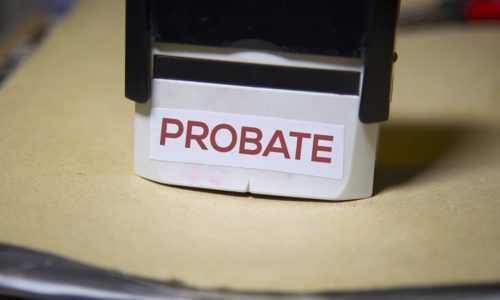Elder Law: Estate Planning
Estate Planning is the process whereby a person develops a plan and prepares documents to conserve, protect, and distribute estate assets before and after death for the benefit of relatives, friends, loved ones and charities, taking into consideration the effect of state and federal tax and administrative laws and regulations. It can also involve planning for the use of your assets for your care, if you become unable to manage your affairs during your lifetime.
If you own a home, have some savings, or own any goods such as a car or furniture, then you have an estate. Planning for the future will affect the financial security of those you love. If you don’t plan for what happens to your estate upon your death, the government will make those decisions for you.
Simple Estate Planning includes: Preparation of simple Wills, Trusts and related documents, Living Wills and Healthcare Surrogates, Durable Powers of Attorney, Designations of Pre-Need Guardian, Deeds, Settlement of decedents’ estates- Probate and Estate Administration.
Complex Estate Planning requires a more sophisticated review, consultation & instruments (documents).
You’ve spent years building financial and psychological security for yourself and your family. Don’t lose it now! Numerous threats can erode your assets and prevent your estate from being managed and distributed according to your wishes. These threats include guardianship, estate taxes, disability and probate. With a well-designed estate plan, you can:
- Protect your assets from being lost to unnecessary taxes, nursing home expenses, and probate fees.
- Ensure that someone you know and trust can handle your affairs if you become disabled.
- Help maintain your independence and keep the court out of your medical decisions.
- Eliminate worries that your assets might end up in the wrong hands, instead of with your heirs and other beneficiaries you choose.
An estate plan is about more than planning for death. It is about planning for whatever comes your way during your lifetime. A sound estate plan adds up to a lot of peace of mind for you and your family.
Unfortunately, most people tend to procrastinate when it comes to estate planning. Let’s face it, deciding who gets your assets when you are gone, and who will manage your assets if you become disabled, are tasks most people would rather ignore. But if you’re reading this, you’re probably ready to take that first step toward greater peace of mind.
Practice Area Attorneys
Robert Mellinger
Robert L. Mellinger, has over 33 years of experience as an attorney, having been admitted to practice law in California, New York, Pennsylvania and Florida as well as several U.S. Federal Jurisdictions, including the Supreme Court of the United States of America.
Read More






